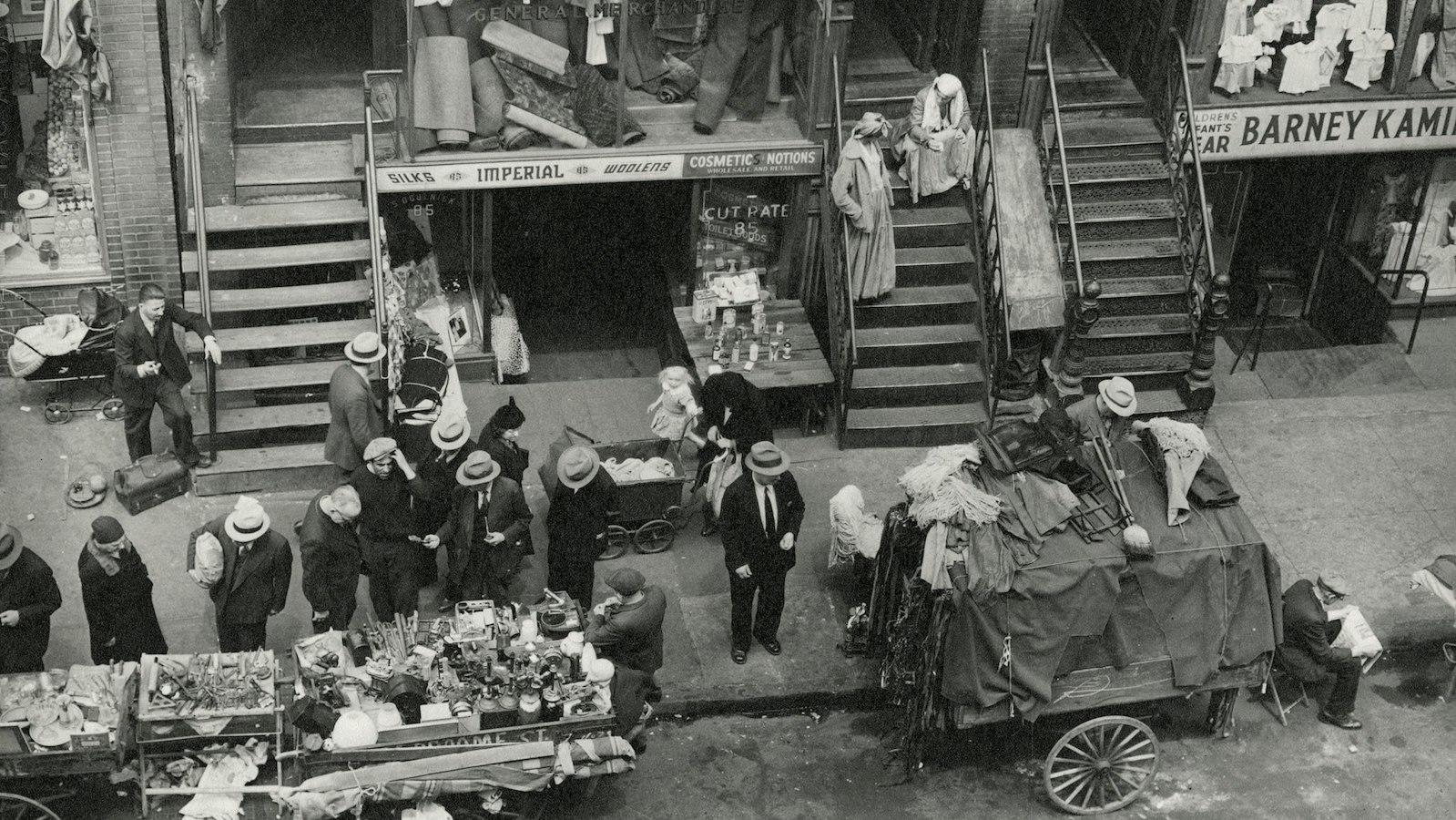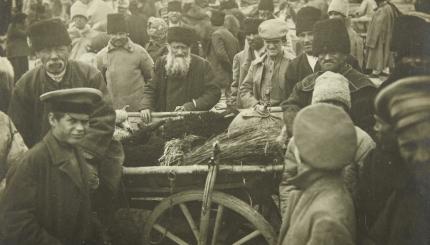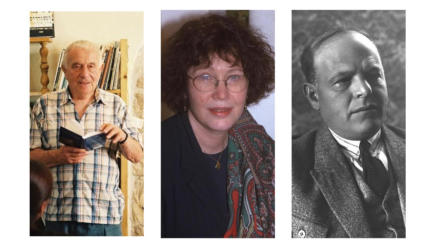I had just begun to peel the potatoes for dinner when my oldest sister Bessie came in, her eyes far away and very tired. She dropped on the bench by the sink and turned her head to the wall.
One look at her, and I knew she had not yet found work. I went on peeling the potatoes, but I no more knew what my hands were doing. I felt only the dark hurt of her weary eyes.
I was about ten years old then. But from always it was heavy on my heart the worries for the house as if I was mother. I knew that the landlord came that morning hollering for the rent. And the whole family were hanging on Bessie’s neck for her wages. Unless she got work soon, we’d be thrown in the street to shame and to laughter for the whole world.
I already saw all our things kicked out on the sidewalk like a pile of junk. A plate of pennies like a beggar’s hand reaching out of bunch of rags. Each sign of pity from the passers-by, each penny thrown into the plate was another stab into our burning shame.
With your help, My Jewish Learning can provide endless opportunities for learning, connection and discovery.
Laughter and light footsteps broke in upon my dark thoughts. I heard the door open.
“Give a look only on these roses for my hat,” cried Mashah, running over to the looking glass over the sink. With excited fingers she pinned pink paper roses under the brim. Then, putting on her hat again, she stood herself before the cracked, fly-stained ,mirror and turned her head first on this side and then on the other side, laughing to herself with the pleasure of how grand her hat was. “Like a lady from Fifth Avenue I look, and for only ten cents, from a pushcart on Hester Street.”
Again the door opened, and with dragging feet my third sister Fania came in. Bessie roused herself from the bench and asked, “Nu? Any luck with you?”
“Half the shops are closed,” replied Fania. “They say the work can’t start till they got a new president. And in one place, in a shirt factory, where they had a sign, ‘Girls Wanted,’ there was such a crowd of us tearing the clothes from our bodies and scratching out each other’s eyes in the mad pushings to get in first, that they had to call two fat policemen with thick clubs to make them stand still on a line for their turn. And after we waited for hours and hours, only two girls were taken.”
Mashah looked up from the mirror.
“Didn’t I tell you not to be such a yok and kill yourself pushing on a line a mile long, when the shop itself couldn’t hold those that were already on the doorstep? All the time that you were wasting yourself waiting to get in, I walked myself through the stores, to look for a trimming for my hat.”
Excerpt from Bread Givers by Anzia Yezierska, copyright (c) 1970 by Louise Levitas Henriksen. Published by Persea Books, Inc., New York.
Want to continue reading? Buy the book.
Learn more about Bread Givers and its place in the canon of American Jewish literature.




